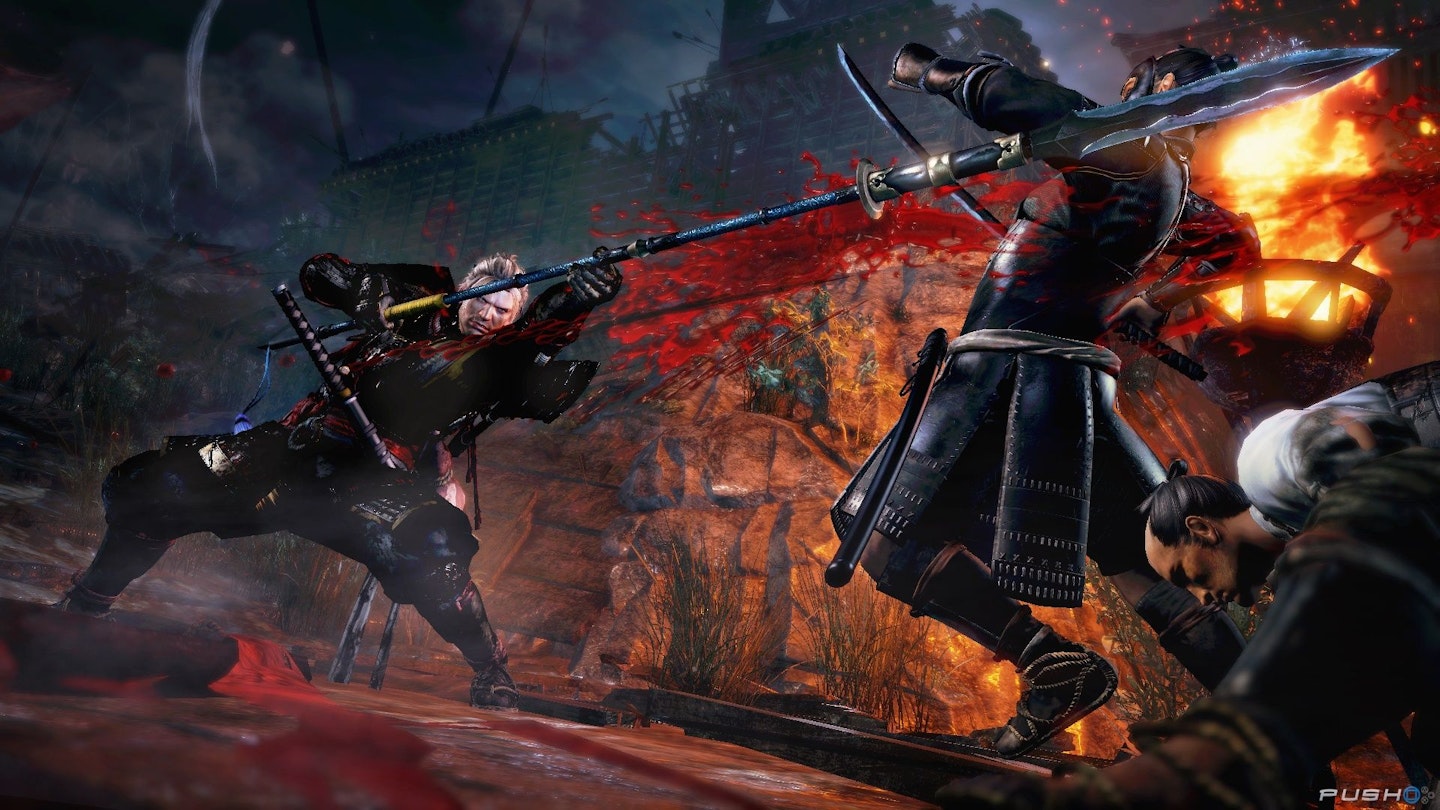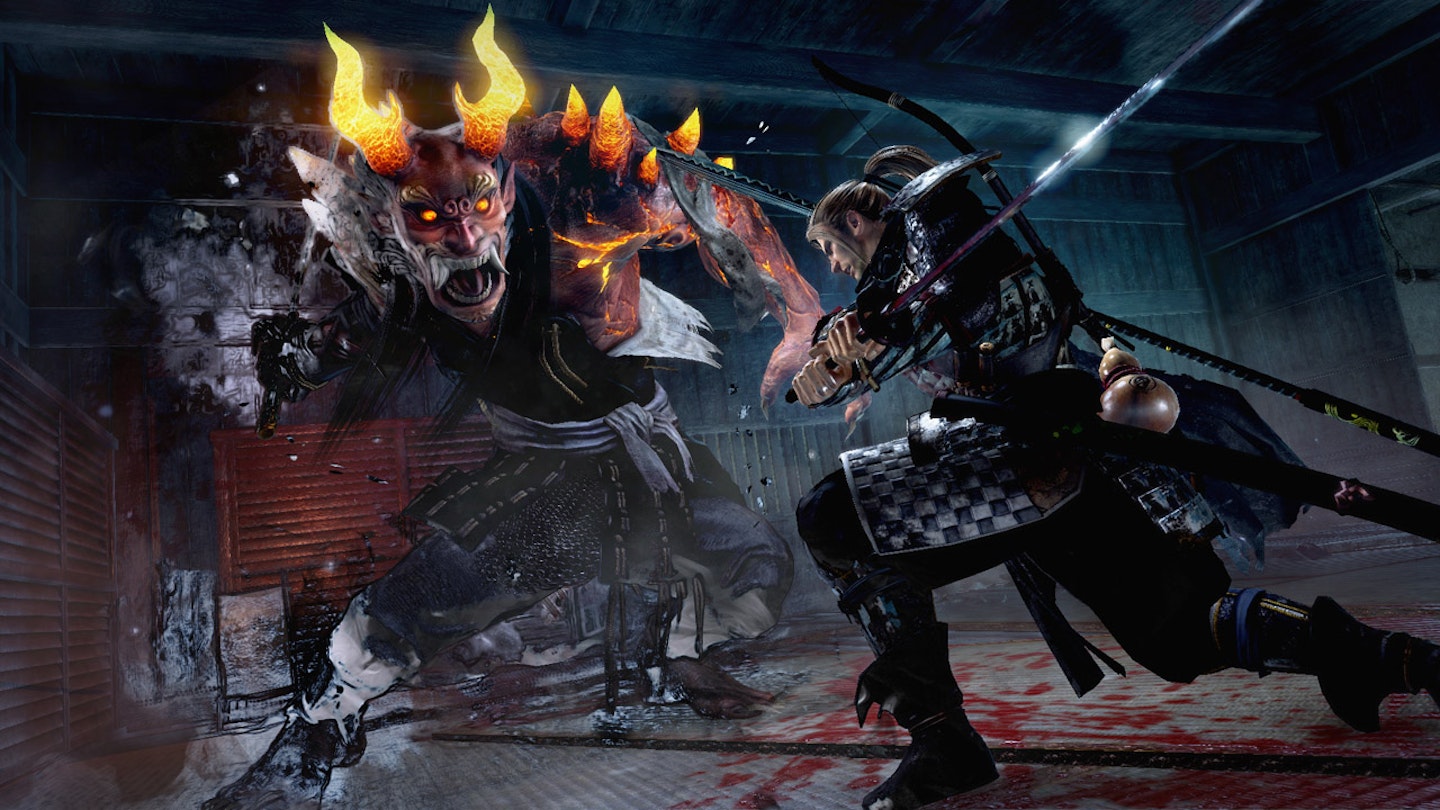Nioh has three main inspirations. One is the life of William Adams – who actually existed, becoming the first western samurai – although we're fairly confident the real world figure didn't earn the honour by slaying a horde of demons. The others are developer Team Ninja's own Ninja Gaiden games and the Dark Souls series. Both are notorious for their difficulty, so it should come as no surprise that Nioh takes after its parents.
It's easy to dismiss Nioh as merely a Dark Souls clone. From the strike-and-retreat, stamina-oriented combat to the dark and foreboding environments, this is going to feel very familiar to fans of From Software's gothic masterpieces. There's even the inability to pause the game when you need to swap out equipment, for added frustration.

Peer closer though. Nioh offers a world steeped in both the history and mythology of the real world, making it more approachable and fanciful than its peer. Once you've escaped a particularly dreary section in the Tower of London early on, the Japanese landscapes and mountain fortresses that make up the rest prove impressive. Even the monstrous yokai populating them are striking in ways Souls' grim abominations can't match.
Nioh offers a world steeped in both history and mythology.
Combat also manages to surprise. Each weapon can be wielded in low, mid, or high stance, affecting power and speed, while customisable skills – similar to Ninja Gaiden – add variety. The biggest departure is Nioh's spirit animals – think Pokémon you can bond to William, adding new elemental attributes to your abilities. There's far more complexity to be found here than first impressions allow.
Nioh suffers on scale though. Its environments are smaller, each area selected as a mission from a menu, rather than the vast, maddening labyrinths of Dark Souls. A disobedient camera doesn't help, either. Still, despite its obvious influences, Nioh emerges more than the sum of its parts – a hardcore gem.
